Venus Crescent 2017
Heritage 100P | Skymax 102 | Addendum | Addendum 2 | References
On February 13, 2017, I tried to take some photos of Venus crescent with my Sky-Watcher Dobsonian Heritage 100P and Skymax-102 Maksutov-Cassegrain telescopes. I was able to see the crescent as I had never seen it before, probably thanks to the cold winter. The interesting question was whether I would be able to take photos of the crescent as well. To make it short, I was able to take photos on which you can see the crescent.
I used my Leica X Vario (1:50 method) for the photos. Once more, it was very difficult for me to avoid vignetting. I used the following camera settings: manual mode, 1600 ASA, distance fixed to infinity. Later photos were taken with the Ricoh GR.
I used a 16 mm and a 7 mm eyepiece - as far as I can remember... Also note that the Heritage 100P achieves only about one third of the magnification of the Skymax 102 (given the same focal length of the eyepiece).
Later Observations
On February 14 and 18, 2017, I observed Venus with my 8" Dobson telescope GSD 680. The results were similar to that of the Skymax 102. From mid- February to mid-March, I observed the ever-narrowing Venus crescent with different telescopes. On March 11, 2017, I once more tried to take photos of the Venus crescent with a borrowed Celestron FirstScope 76 and my Heritage 100P, the best of which I show below. On March 15, 2017, I observed the Venus crescent with my Sky-Watcher Heritage P130 (5") telescope, using a 16 mm and a 4 mm UWA eyepiece. The selected photos below are 100% crops.
Heritage 100P
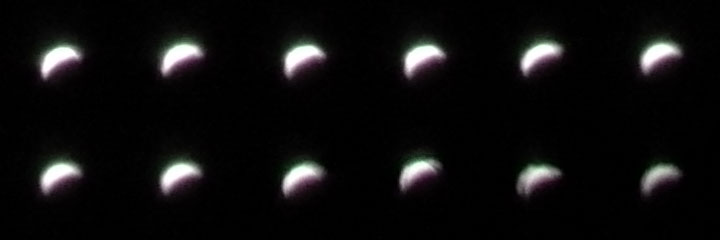
100% crops, Leica X Vario
Skymax 102
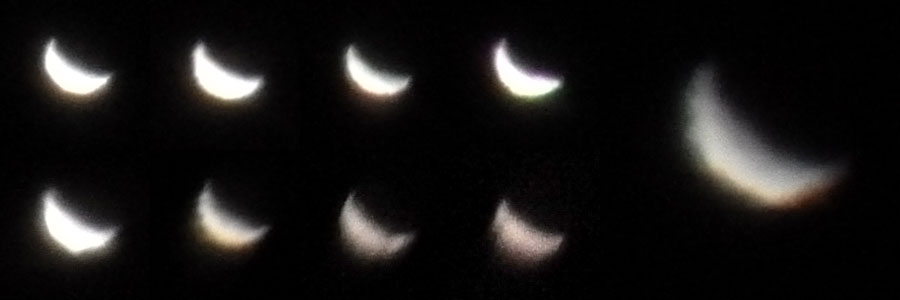
100% crops; the photo to the right was taken with a longer focal length of the camera; Leica X Vario
Addendum
On March 11, 2017, I took photos with a borrowed Celestron FirstScope 76 and my Heritage 100P, the best of which are shown below (100% crops). The photos were taken with the Ricoh GR (1:50 method).
Celestron FirstScope 76 |
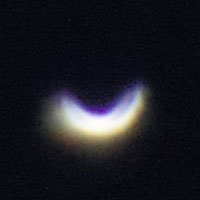 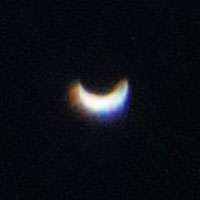 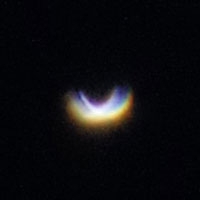 |
Sky-Watcher Heritage 100P |
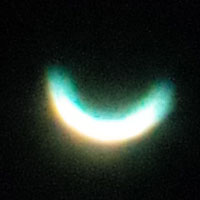 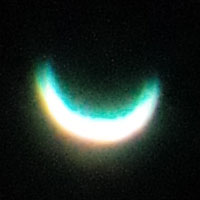 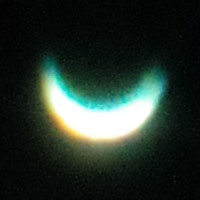 |
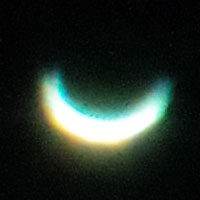 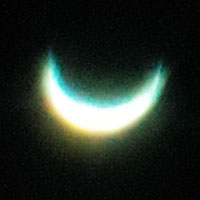 |
On March 13, 2017, I made another attempt at the Venus crescent with the borrowed Celestron FirstScope 76 using eyepieces with focal lengths between 6 mm and 32 mm. The photos were again taken with the Ricoh GR (1:50 method). Here is a selection of my photos:
Celestron FirstScope 76 |
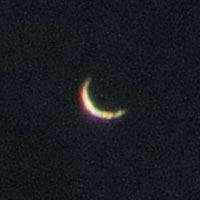 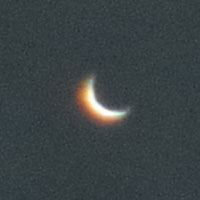 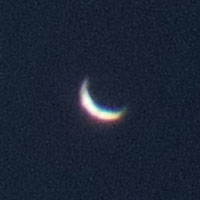 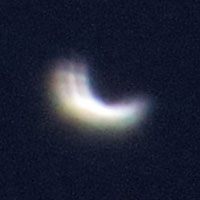 |
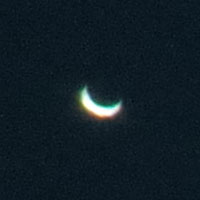 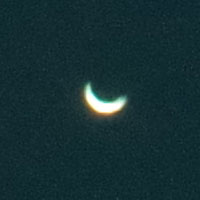 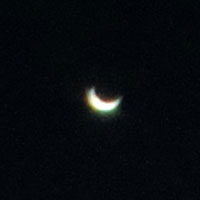 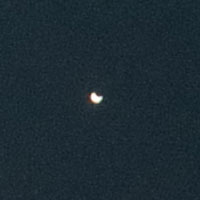 |
Top left: this comes closest to what I saw; top right: 6 mm eyepiece, some shake; bottom right: 32 mm eyepiece, about 9 x magnification! The other photos were taken with focal lengths in between
By the way: On this day, I was able to see the Venus crescent even with our 10 x 20 binoculars well, abeit very small!
Addendum 2
On March 15, 2017, I observed the Venus crescent with my Sky-Watcher Heritage P130 (5") telescope, using a 16 mm and a 4 mm UWA eyepiece. The selected photos below are 100% crops. The photos were once again taken with the Ricoh GR (1:50 method).
Heritage P130 |
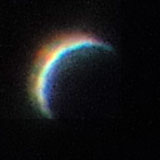 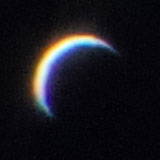 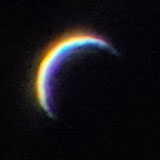 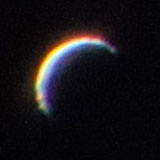 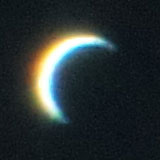 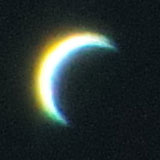 |
16 mm UWA eyepiece (about 40 x) |
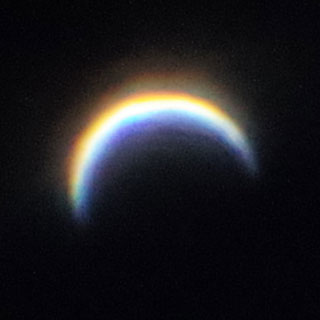 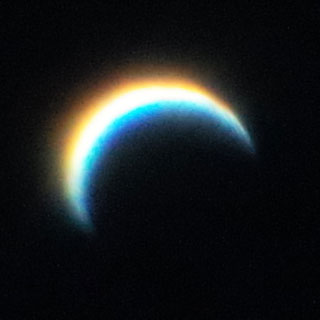 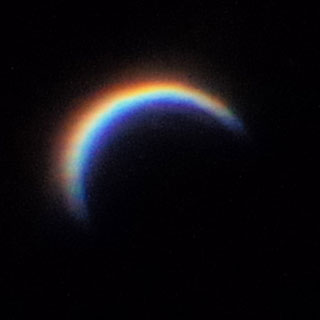 |
4 mm UWA eyepiece (about 160 x) |
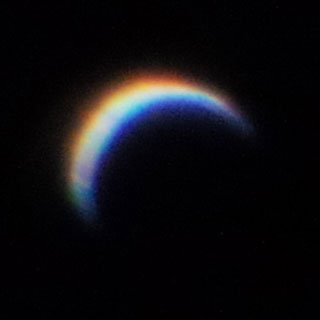 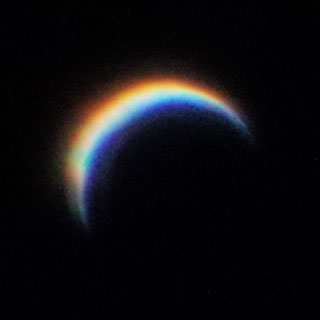 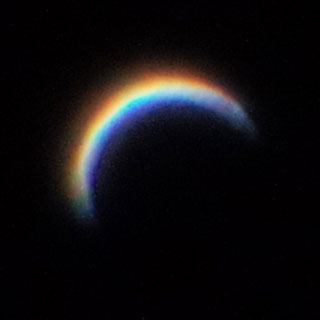 |
4 mm UWA eyepiece (about 160 x) |
References
- The Phases of Mercury and Venus (Jürgen Giesen): www.venus-transit.de/PlanetPhases/index.html
- Die Phasen der inneren Planeten (Grafik): www.br-online.de/wissen-bildung/spacenight/sterngucker/planeten/planetenphasen-gr.html (in German)
- Phases of Venus (Wikipedia): en.wikipedia.org/wiki/Phases_of_Venus
| 19.11.2021 |